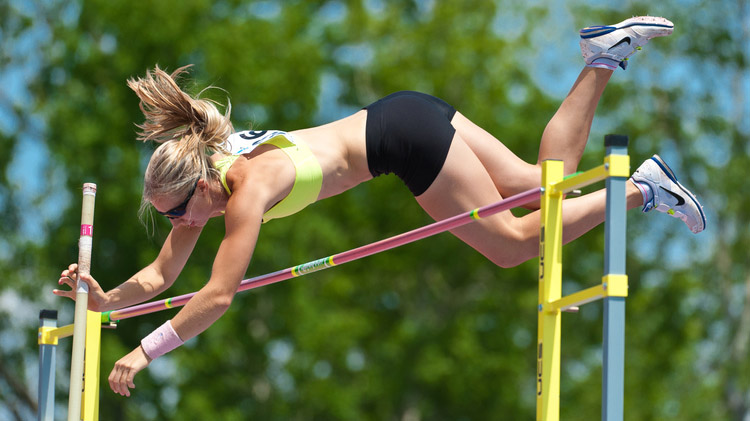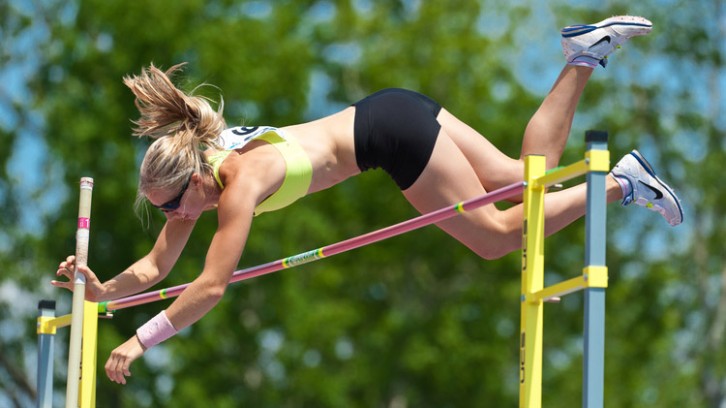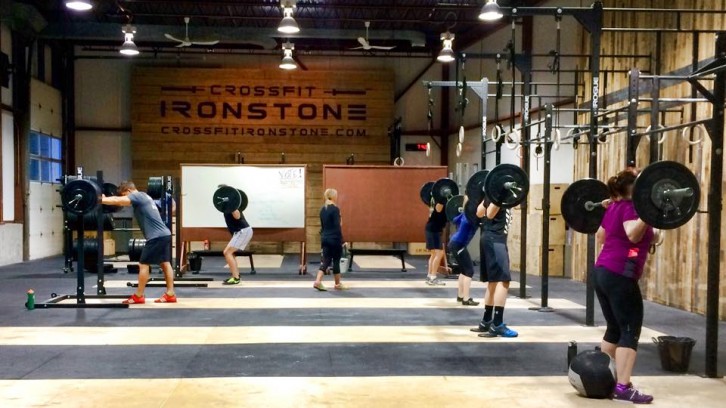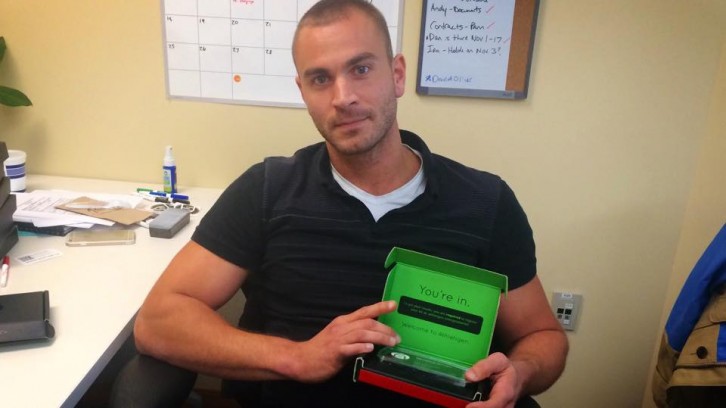Athletics
N.S. company brings new face to genetic DNA for athletes
A startup offers professional athletes and weekend warriors a way to advance their workouts

caption
"Understanding areas of my recovery that are potentially slower then some of my competitors. That was the biggest takeaway": athlete Heather Hamilton
caption
“Understanding areas of my recovery that are potentially slower then some of my competitors. That was the biggest takeaway”: athlete Heather HamiltonIf Heather Hamilton gets an injury pole-vaulting, she relies on a DNA analysis tool to tell her how long to wait before recovery and how, perhaps, she could prevent it next time.
Hamilton is a professional pole-vaulter who has trained for 10 years all over North America, and is a Canadian national pole vault champion. She retired from vaulting earlier this year, but had the chance to use Athletigen in her training for about a year before she stopped. Hamilton now serves as a high performance liaison with Athletigen, which had a partnership with the track and field development organization she used to be involved with.
The 27-year-old Halifax resident says through her years of vaulting she learned a lot about her physique and workout regime. But a tool like Athletigen could have helped her advance further.
“[Athletigen] just drills down the fact that we all need separate and individualized plans,” said Hamilton.
Athletigen is a tool. It looks at your DNA and aims to tell you ways to reduce your risk of injury, tailor your diet to your metabolism, improve your endurance and ultimately make you a better athlete by maximizing your talents and diminishing your weaknesses.
While it was originally designed with high performance athletes in mind, Athletigen is available to anybody who wants to know more about their body and their athletic dispositions, and for anybody who wants to lead a healthier life.
After ordering a kit online, you receive a small, matte-black rectangular box at your home. In it is a container with a DNA spit kit. You swoosh around your saliva and spit it out into a transparent tube with a barcode near the bottom. You close the tube, put it in sterile bag and send the kit back to Athletigen’s labs, at the Maritime Centre on Barrington Street and Spring Garden Road. There, workers analyze it and send you your information within four to eight weeks.
The kit costs $199, and with it you receive your genetic blueprint.

caption
The tool benefits a range of athletes – hinting at their strengths and helping them work on any weaknesses.While the company is only one year old, according to Nova Scotia’s Life Sciences and Biotechnology Industry Association, Athletigen currently owns the world’s largest sports genetic database and is partnered with Affymetrix, a service provider specializing in genetic analyzing.
The startup is headquartered in Halifax and collaborates with genetic analysis companies associated with Dalhousie University and Stanford University. It is endorsed by Halifax-born Boston Bruins left-winger Brad Marchand.
Whether users are cyclists, curlers or baseball players, they receive a customized analytical report that instructs them on areas they can focus on to increase their competitiveness.
For Hamilton, it was understanding that her recovery capacities are slower than her competitors.
“I have more of the endurance-type markers, so I might take longer to adapt to power exercises,” said Hamilton.
She adds that the tool actually helps her personalize her training, so she’s not comparing herself to other people she’s training with.
Alexi Pianosi, head strength and conditioning coach of the Halifax Mooseheads, agrees with Hamilton and says Athletigen allows athletic therapists to understand athletes better, and therefore tailor their regime better.
“Every athlete is different and Athletigen really taps into those genetic differences,” he said.
While the Mooseheads as a team don’t use Athletigen, a couple of players use it privately, as well as some individual athletes Pianosi trains in his spare time.
“If you have a lot of tough injuries or [you] tend to get re-injury issues, something like Athletigen can get a better look at the underlying cause for it. You hate to see somebody missing [out] on time or opportunity because of something that could be easily fixed, like nutritional change or just a predisposition that requires them to get a little more rest than everybody else,” he said.
But Marius Locke, a professor and director of graduate studies for the Faculty of Kinesiology at the University of Toronto, believes that getting better at a sport is a combination of a lot of different things — skill, size, strength and endurance.
“So something that may help you in one direction, might not be advantageous in another,” said Locke, about using Athletigen to focus on certain predispositions.
Locke says it’s still early in terms of our scientific knowledge to determine whether someone is predisposed for certain athletic activity, because genes are fickle.
He says, “If you alter one gene in any way, all your other ones may change as well.”
Locke believes a tool like Athletigen might be a waste of time for elite athletes “because once you’re at that stage, you already know if you’re genetically predisposed to be talented or not.” But still, he says the tool could be beneficial for aspiring athletes and perhaps could grow in the future to be more useful to the elite ones “who’ve already got a place in the stadium.”
Pianosi notes that while athletic genetic information became popular after David Epstein’s best-seller The Sports Gene, athletes weren’t sure what to do with the information; usually their results were convoluted and difficult to analyze. When Athletigen came out in 2014, “[it] was really good at interpreting those results,” said Pianosi.

caption
Jeremy Koenig believes his startup tool can give users “insights specifically that relate to aspects of athleticism.”Jeremy Koenig, the CEO and founder of Athletigen, has a PhD in biochemistry and molecular biology from Dalhousie University and completed his postdoctoral studies at Cornell in Ithaca, N.Y. With his research background, Koenig decided to quit his job and start a company before his savings ran out.
Currently, Athletigen employees 18 people who range from genetic specialists, to coaches, to performance experts.
“Similar to what David Epstein has done is what we’re doing. But in a way that’s much more accessible to the individual athlete,” said Koenig.
His vision for Athletigen was to allow individuals to know themselves on a deeper genetic level and give them “insights specifically that relate to aspects of athleticism and present them in a form of ‘genetic gifts.’”
Koenig says usually a small adjustment in an athlete’s workout regime would advance skills that hadn’t been progressing in the past.
“Previously people would burn out when it came to competition time, because they were doing too much volume. So they were unable to perform that one day a year when they needed to. And this time around they did,” said Koenig.
Heather Hamilton, as a user of the tool, would love to know more about areas of injury and recovery. She believes that there is still information that can come from those genetic predispositions.
“Basically, over any area of your training that you have control over making a decision, the more knowledge you have about that is so beneficial,” she said.

